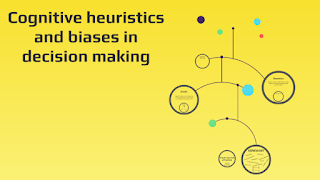Ruggeri, K., Ashcroft-Jones, S. et al.
Sci Rep 13, 10329 (2023).
Abstract
While economic inequality continues to rise within countries, efforts to address it have been largely ineffective, particularly those involving behavioral approaches. It is often implied but not tested that choice patterns among low-income individuals may be a factor impeding behavioral interventions aimed at improving upward economic mobility. To test this, we assessed rates of ten cognitive biases across nearly 5000 participants from 27 countries. Our analyses were primarily focused on 1458 individuals that were either low-income adults or individuals who grew up in disadvantaged households but had above-average financial well-being as adults, known as positive deviants. Using discrete and complex models, we find evidence of no differences within or between groups or countries. We therefore conclude that choices impeded by cognitive biases alone cannot explain why some individuals do not experience upward economic mobility. Policies must combine both behavioral and structural interventions to improve financial well-being across populations.
From the Discussion section
This study aimed to determine if rates of cognitive biases were different between positive deviants and low-income adults in a way that might explain some elements of what impedes or facilitates upward economic mobility. We anticipated finding small-to-moderate effects between groups indicating positive deviants were less prone to biases involving risk and uncertainty in financial choices. However, across a sample of nearly 5000 participants from 27 countries, of which 1458 were low-income or positive deviants, we find no evidence of any difference in the rates of cognitive biases—minor or otherwise—and no systematic variability to indicate patterns vary globally.
In sum, we find clear evidence that resistance to cognitive biases is not a factor contributing to or impeding upward economic mobility in our sample. Taken along with related work showing that temporal choice anomalies are tied more to economic environment rather than individual financial circumstances, our findings are (unintentionally) a major validation of arguments (especially that of Bertrand, Mullainathan, and Shafir) stating that poorer individuals are not uniquely prone to cognitive biases that alone explain protracted poverty. It also supports arguments that scarcity is a greater driver of decisions, as individuals of different income groups are equally influenced by biases and context-driven cues.
What makes these findings particularly reliable is that multiple possible approaches to analyses had to be considered while working with the data, some of which were considered into extreme detail before selecting the optimal approach. As our measures were effective at eliciting biases on a scale to be expected based on existing research, and as there were relatively low correlations between individual biases (e.g., observing loss aversion in one participant is not necessarily a strong predictor of also observing any other specific bias), we conclude that there is no evidence from our sample to support that biases are directly associated with potentially harming optimal choices uniquely amongst low-income individuals.
Conclusion
We sought to determine if individuals that had overcome low-income childhoods showed significantly different rates of cognitive biases from individuals that remained low-income as adults. We comprehensively reject our initial hypotheses and conclude that outcomes are not tied—at least not exclusively or potentially even meaningfully—to resistance to cognitive biases. Our research does not reject the notion that individual behavior and decision-making may directly relate to upward economic mobility. Instead, we narrowly conclude that biased decision-making does not alone explain a significant proportion of population-level economic inequality. Thus, any attempts to reduce economic inequality must involve both behavioral and structural aspects. Otherwise, similar decisions between disadvantaged individuals may not lead to similar outcomes. Where combined effectively, it will be possible to assess if genuine impact has been made on the financial well-being of individuals and populations.
